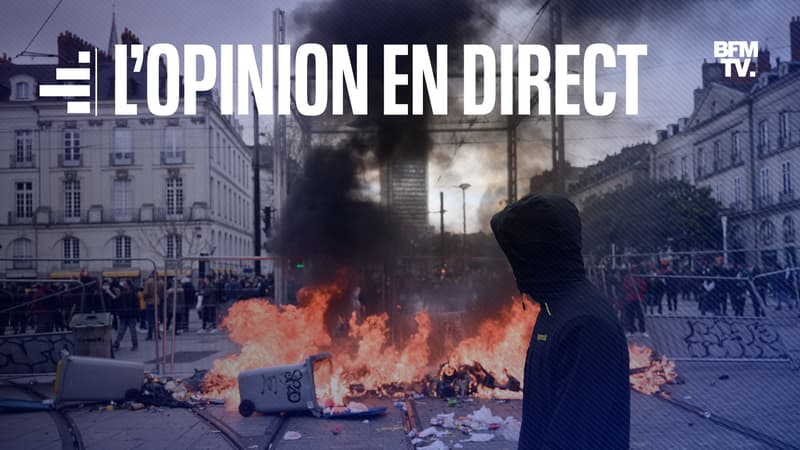The French are angry. Four days after Elisabeth Borne’s use of 49.3, almost seven French people (68%) in 10 say they feel angry, indicates a new poll by Elabe for BFMTV published on Monday. One in four French people (24%) say they are indifferent and only 8% of those surveyed say they are satisfied.
Anger illustrated by the numerous demonstrations throughout France after the announcement of 49.3 by the government. Thousands of French people took to the streets denouncing a “coup d’état”.
A sign that anger should not fall immediately, 67% of the French want the mobilization against the pension reform to continue. 45% of those surveyed even believe that it needs to “toughen up”.
A “denial of democracy” for 69% of the French
The anger is felt very strongly by the French opposed to the reform (88%), the active (75%, compared to 54% retirees) and more specifically by employees, workers and intermediate professions.
It is also felt by a large part, albeit a minority, of Emmanuel Macron’s voters in the first round of the presidential elections (41% angry, 41% indifferent, 18% satisfied).
Conversely, satisfaction is highest among retirees (16%) and Renaissance followers (25%).
Seven out of ten French people (69%) consider that “49.3 is a denial of democracy that allows laws to be passed when there is no majority in the National Assembly.” An opinion shared by 77% of manual workers, 70% of CSP+ and 75% of workers.
Even more surprising, 45% of Emmanuel Macron’s voters in the first round of the presidential elections (55% in the second round) also believe that 49.3 is “a denial of democracy”. 53% of them consider, on the contrary, that “49.3 does not affect in any way the proper functioning of democracy.”
Survey conducted online from March 18 to 19, 2023, with a sample of 1,001 people representative of the residents of mainland France over 18 years of age. The representativeness of the sample was ensured according to the quota method applied to the following variables: sex, age and profession of the interviewee, prior stratification by region and agglomeration category.
Source: BFM TV


